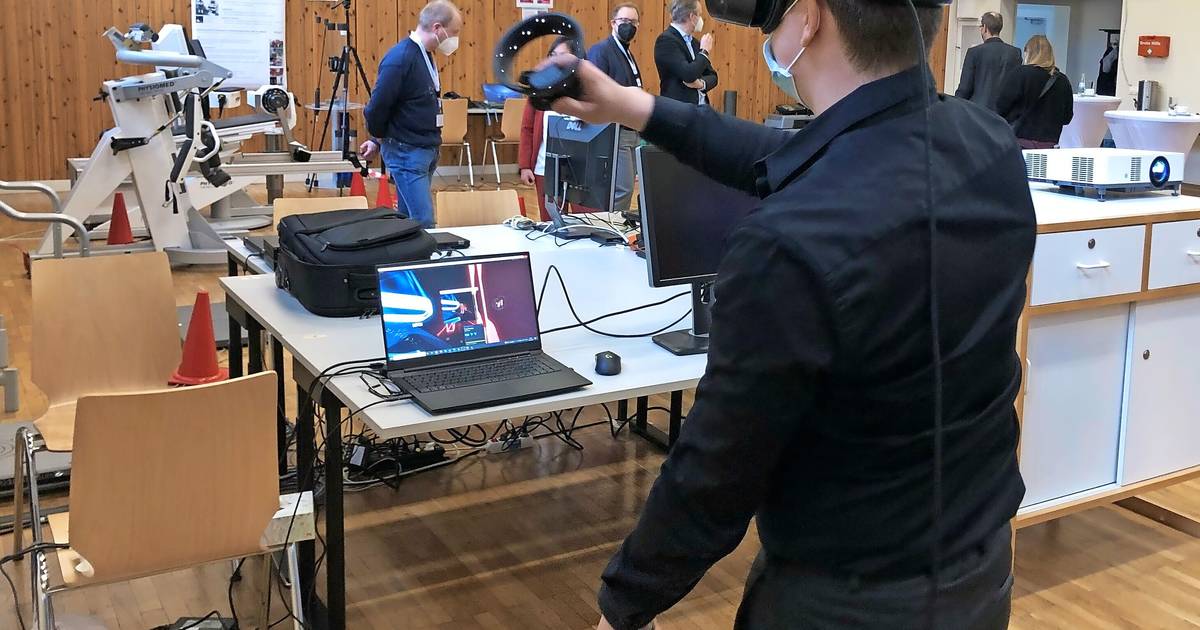Research
:
Virtual reality as a new form of therapy
;)
A participant is trying out a virtual reality application.
Photo: Carolina Bendick
Terrier How can virtual reality motivate people with heart failure to be physically active? This is just one of the questions that the new Research School “Digitization and Health” at the University of Trier and the University of Trier are interested in.
Heike Spaderna is one of ten professors looking for digital solutions to preventive and curative measures as part of the “Digitization and Health” research training group in Trier. “Physical activity has been shown to help people with heart failure,” Spaderna says.
That is why it is developing a system that aims to motivate patients to be physically active through exercise games. Spaderna explains that these influencers are put on virtual reality goggles that give them the feeling of movement in a virtual video game.
This would reduce the fear of movement, but also make it easier to comply with the threshold values established by clinicians. “If the project is successful, glasses should be available to those affected at home,” Spaderna explains.
Other projects focused on relieving back pain were also presented. Here, a digital therapy environment has been created once again. The patient sees an avatar through virtual reality glasses, which are supposed to guide the patient through a virtual environment and specifically stimulate stimuli through conditioned biofeedback. Jörg Lohscheller explains that this digital form of therapy should also provide a distraction and help continue therapy.
“Traditional forms of therapy have the disadvantage that the trips, especially in rural areas, can be very long. In addition, therapists have little time for their patients,” explains Loehschler. In contrast, forms of therapy that include virtual reality should be done easily from home. Incorporating it into virtual action games the pleasure factor must be increased, so that no opposition to pain is seen. Patient-centered feedback also increases compliance with treatment.
The Research College is a collaborative project between the University and the University of Trier. Six doctoral degrees are supported, which are conducted under supervision alongside university and college professors.
In particular, the health campus will be expanded in order to enhance teaching and science transfer. Denis Alt, Secretary of State at the Ministry of Science, Further Education and Culture in the Rhineland-Palatinate, describes the Research School as an “engine of innovation”. It is a closely related research topic that can combat common causes of disease. Alt has handed two funding notifications of €350,000 to the President of Trier University, Michael Jekyll, and to the President of Trier University of Applied Sciences, Dorit Schumann.

“Certified gamer. Problem solver. Internet enthusiast. Twitter scholar. Infuriatingly humble alcohol geek. Tv guru.”





